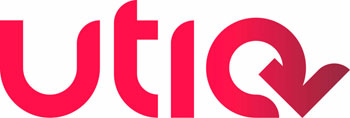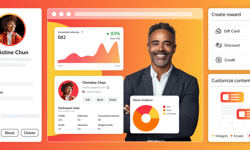
Q: How would you define the open web?
A: The open web is the home of quality, fact-checked content, covering a multitude of topics, written by independent journalists, and funded primarily by advertising, plus some subscriptions. It is key to the dissemination of accurate, truthful information that people don’t have to pay for. It’s also where most people get most of their information from online, whatever their passions, from running to trainspotting, and it’s really the birthplace of online content. It’s been around ever since the internet became something more than a place for academics to hang out, and long before Mark Zuckerberg, Jack Dorsey and others created the walled gardens of social media.
Q: Why is it important?
A: Because of the threat that would be posed to democracy if there were no open web and we had to rely on the platforms and walled gardens for information. We have all witnessed the rise of fake news on the platforms — the open web is a vital safeguard against this. In an age where people find it very hard to believe or trust what they read, the open web is mostly a safe haven of trusted, authentic content.
Q: What part does the open web play in the lives of consumers?
A: A big one. According to a recent study conducted by The Trade Desk, users spend 61% of their online time on the open web consuming quality, ad-funded content. The intent and desire to consume content from independent publishers is strong, but our current infrastructure is not conducive to growing ad spend in this environment. Despite commanding the majority of eyeballs, however, the open web loses out to the large platforms when it comes to ad spend.
Q: What are the biggest threats to the survival of the open web?
A: I see two main ones. The first is that brands don’t see the value and ROI in the open web, so they divert budgets away from it, and towards the walled gardens. That increases the disparity between where online users spend their time, and where advertisers spend their advertising dollars. This is where we are right now, and have been for some time. And I understand why brands do this. The precise targeting of logged-in users that the walled gardens enable is an appealing feature, and something that publishers on the open web have not yet managed to replicate at scale. But it is a serious, indeed existential threat, because, at the risk of stating the obvious, a primarily ad-funded ecosystem cannot survive without advertising.
The second, related issue is the lack of adoption of a persistent identifier on the open web that can realise better outcomes and help keep ad spend in the open web environment. This is something Utiq is trying to fix.
Q: How do we sustain the open web?
A: It’s something of a virtuous circle. If we can drive more ad spend back into the open web by educating consumers about the value of advertising and the quality of the content it helps to fund, it will enable publishers to continue to invest in sustained quality content. And the more quality content people are presented with, the more likely they are to keep coming back, creating the scale that advertisers demand.
Q: What does the future of the open web look like?
A: It will probably be more curated, and while curation is something of a current buzzword, it is by no means a bad thing. Curation is just a grouping of inventory based on a buyer’s required parameters. Think of it as putting guard rails around open web inventory in order to deliver more comfort and reassurance to a buyer about the quality of the inventory they are buying, without the need to create an exclusion list.
Q: How is Utiq helping to sustain / protect / safeguard the future of the open web?
A: We want to make advertising on the open web competitive, and we are doing this by delivering a persistent identifier at scale. This starts to bring buyers a level of parity to addressability when compared with the major platforms.
We are pressing on with our growth plans for Europe. We will be live in the top five European countries by Q1 2025 and we are looking to expand further throughout 2025. Our service is now available via wi-fi in France, and will be enabled across the rest of our live markets by March, opening up more scale and greater addressability.

About us
Utiq is a European adtech company with a unique telco-powered first party identifier, that harnesses authentic consent to enable responsible digital marketing.
Utiq empowers brands and publishers to address first party authentic audiences at scale, delivering relevant ad-funded experiences while embracing the very toughest privacy standards, through its secure and encrypted consentpass solutions.
Our easy-to-use and centralised consenthub platform also gives users simple control and choice over their data, and is part of our ambition to build an ecosystem based on trust and transparency.
Utiq was launched in 2023 and is backed by the telecommunications providers Deutsche Telekom AG, Orange SA, Telefónica S.A. and Vodafone Group plc.
More about Utiq: utiq.com










